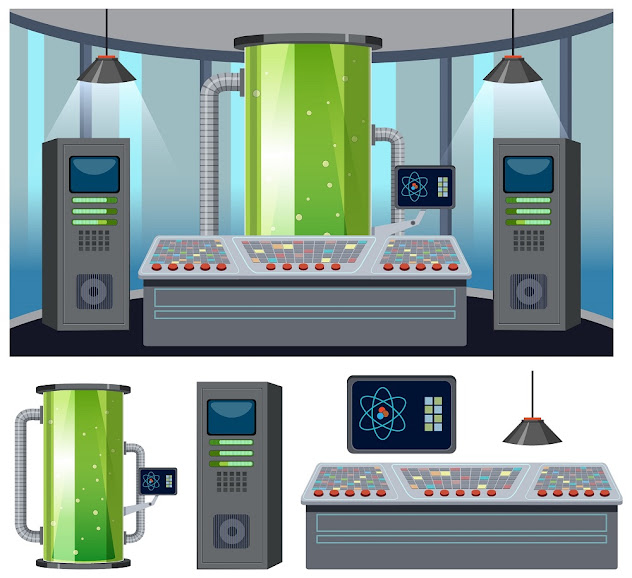Right Now
Small Modular Reactor Market Research Methodology Forecast to 2035 | BIS Research
The global energy landscape is undergoing a transformative shift driven by the urgent need for low-carbon energy solutions, grid flexibility, and enhanced safety protocols. In this context, Small Modular Reactors (SMRs) are gaining significant attention as a next-generation nuclear technology that offers a viable alternative to conventional nuclear reactors. These compact, scalable, and factory-fabricated nuclear power units are poised to revolutionize the power generation industry.
According to BISResearch, the small modular reactor market was valued at $159.4 million in 2024 and is projected to grow at a CAGR of 42.31%, reaching $5,179.6 million by 2035.
Why Is Electricity Production the Leading Application in the SMR Market?
Electricity generation is the leading application in the small modular reactor (SMR) market, driven by the need for clean, reliable power. SMRs offer flexible deployment, even in remote areas. Recent collaborations, such as those between Canadian Nuclear Laboratories and Ultra Safe Nuclear Corporation, and NuScale with Argentina’s INVAP, highlight global interest. SMRs are poised to transform power generation by offering a sustainable, low-emission alternative to traditional energy sources.
What are the key drivers in the global small modular reactor market?
Technological Advancements Driving Growth: Innovations in SMR design—such as modular construction, passive safety systems, and advanced fuel cycles—are making reactors more efficient and safer than traditional nuclear plants, supporting growing demand for clean and reliable energy.
Industry Adoption of Next-Gen Designs: Companies like NuScale Power and Rolls-Royce are leveraging these advancements. NuScale’s NPM uses passive safety features, while Rolls-Royce is developing compact, scalable SMRs to meet diverse energy needs.
Enhanced Operational Efficiency: Integration of digital monitoring, automation, and smart control systems is improving operational efficiency and economic feasibility, making SMRs easier to manage and more commercially attractive.
Future Innovation Potential: Emerging technologies, including molten salt and high-temperature gas-cooled reactors, are expected to expand SMR applications, particularly in industrial sectors requiring high-temperature energy solutions.
Request A Detailed Sample on the Small Modular Reactor Market!
Opportunities in the Small Modular Reactor Market
Decarbonization Policies Fuel SMR Demand: The global shift toward climate change mitigation and net-zero targets is driving interest in Small Modular Reactors (SMRs), which offer reliable, low-carbon energy without emissions, making them a strong fit for clean energy strategies.
Government and Industry Alignment: Supportive initiatives such as U.S. DOE funding and Canada’s backing of Terrestrial Energy’s IMSR project illustrate how governments and private players are aligning SMR development with national decarbonization goals.
Future Growth Potential: As countries enforce stricter carbon reduction policies, the demand for scalable, zero-emission energy solutions like SMRs is expected to rise, positioning them as a cornerstone of future energy infrastructure.
Which regions are investing the most in SMR technology?
North America is projected to dominate the small modular reactor (SMR) market, driven by strong regulatory support, advanced nuclear technologies, and strategic investments. Government agencies like the U.S. Department of Energy and Canadian Nuclear Laboratories are backing research, pilot projects, and streamlined approvals. With a focus on decarbonization, energy security, and modern power infrastructure, North America is emerging as a global leader in SMR deployment and clean energy innovation.
Which companies are leading in the Small Modular Reactor market?
The State Atomic Energy Corporation ROSATOM
Tsinghua University
Japan Atomic Energy Agency
NuScale Power, LLC.
JSC NIKIET
Westinghouse Electric Company LLC
China National Nuclear Corporation
Rolls-Royce plc
State Power Investment Corporation Limited
BWX Technologies. Inc.
Terrestrial Energy Inc.
MITSUBISHI HEAVY INDUSTRIES, LTD.
EDF
Moltex Energy
General Atomics
According to Principal Analyst, BIS Research
The global small modular reactor (SMR) market is poised for significant growth in the coming decade, fueled by the increasing demand for reliable, low-carbon energy solutions. As the industry shifts away from large-scale power plants, SMRs—featuring modular construction, standardized components, and factory-based assembly—are emerging as a practical alternative. Market expansion is being supported by heightened decarbonization efforts, improved supply chain efficiencies, and reduced project timelines. Technological advancements and evolving regulatory frameworks that simplify the approval process are also enhancing the sector’s commercial viability. Ongoing investments in pilot projects and collaborative partnerships are expected to further drive progress in this dynamic market.
More Posts

Report This Post
Please complete the following requested information to flag this post and report abuse, or offensive content. Your report will be reviewed within 24 hours. We will take appropriate action as described in Findit terms of use.





















